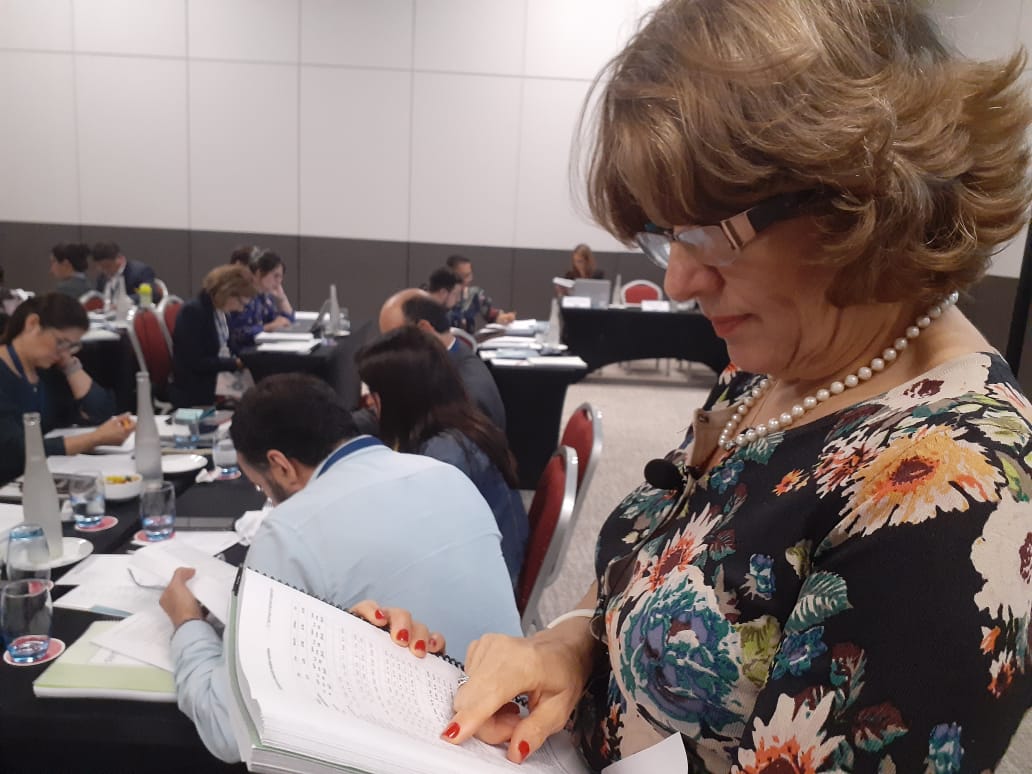The CCLAC Region - Regional Coordinator Ecuador
In 1976 a Coordinating Committee for Latin America, established by the 10th Codex Alimentarius Commission in 1974, held its first meeting in Rome with eight countries from the region in attendance. At its third session a proposal was made to change the name of the committee to its current form (Coordinating Committee for Latin America and the Caribbean) as this better reflected the membership of the region. In 1984 at its 31st session, the Executive Committee, acting on behalf of the Commission, agreed to this change.
The region of Latin America and the Caribbean is an important actor in the production and trade of food at a global level. The region produces enough food to supply itself and to export, with both water and land resources to produce even more.
The region has enormous natural wealth, a flourishing agricultural industry and a family farming sector that is essential for its population. The promotion and strengthening of food safety must be continued at the level of all regions to guarantee the health of consumers and fair and equitable trade.< /p>
The coordinator, Ecuador is based in AGROCALIDAD an agency attached to the Ministry of Agriculture and Livestock. They aim to create synergies between countries in the region, to provide mutual support in order to overcome regional problems and examine solutions to common challenges.
The coordinator further aims to strengthen collaboration among countries and strengthen the participation of developing countries in the Commission and its subsidiary bodies.
CCLAC Coordinator
All information on Codex is public and free.
For regional enquiries contact:
CCLAC Secretariat
Agencia de Regulación y Control Fito y
Zoosanitaria AGROCALIDAD
Avenida
Eloy Alfaro y Amazonas
Quito
Email: [email protected]
Pesticide residues / Training in Chile strengthening expertise in the region
Pesticides are potentially toxic to humans and especially for those who work or come into close contact with them. Yet pesticides also play a key role in food production; protecting or increasing yields and the number of times per year a crop can be grown on the same land. This is particularly important in countries that face food shortages.
FAO and WHO are responsible for assessing the risks to humans of pesticides – both through direct exposure, and through residues in food – and for recommending adequate protection. The Joint FAO/WHO Meeting on Pesticide Residues (JMPR) is an independent, international expert scientific group responsible for carrying out risk assessments for pesticide residues in food. JMPR sets acceptable daily intakes for pesticides, which are then used by governments and international risk managers, such as Codex, to establish maximum residue limits (MRLs) for those pesticides in food.
A workshop funded by FAO and organized jointly by FAO and the Chilean Food Safety Agency (ACHIPIA) is taking place in Santiago, Chile, 17-21 February 2020, to strengthen the capabilities of scientists of countries in the region to evaluate residues and establish MRLs in food. The workshop will also allow participants to learn more about the assessment of risks associated with dietary intake of pesticide residues and to identify potential candidates for the JMPR expert panels. Forty participants from 15 countries in the Latin America and the Caribbean region are attending.
“For Uruguay, this event is very important, as it allows us to strengthen national capacities in the process of registration of pesticides by giving us tools to correctly evaluate the information presented by pesticide manufacturers”, said Susana Franchi.
Food safety standards are an increasingly important issue in the region for safeguarding consumers and for facilitating the international trade of agricultural products.

Eloisa Caldas, Universidade de Brasilia
“This training is very important for professionals coming from Latin American and the Caribbean that work in the pesticide area, because it helps them better understand the scientific work done by JMPR, that supports the decisions of the Codex Alimentarius Commission”, said Eloisa Caldas, Professor at Universidade de Brasilia and one of the training team running the workshop.
Developing countries have increasingly sought to play a larger role in the establishing MRLs for food commodities traded internationally from the region.
Eduardo Aylwin is a participant from the host country Chile. “Chile is really committed to strengthening its understanding of the science behind the MRLs proposed by the Codex Committee on Pesticide Residues, so we can be better prepared to be an effective and valuable addition to the Codex process of setting international standards. This workshop is one step in that direction”, he said.
Learn more
Codex standards at work on a pear orchard in Oregon, USA
Learn more about pesticides from WHO
Main photo (top): ©FAO/Yasuyoshi Chiba / FAO







Leave a comment